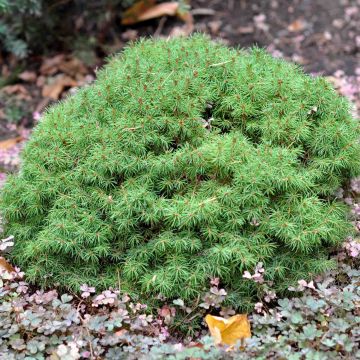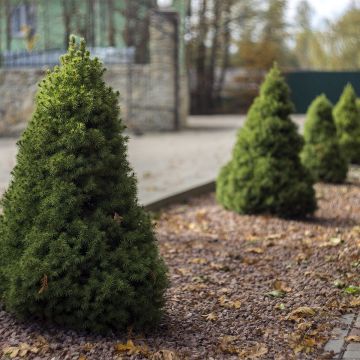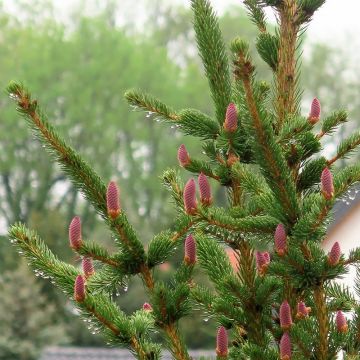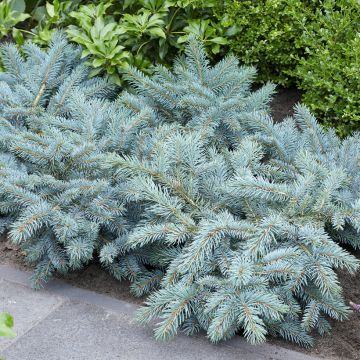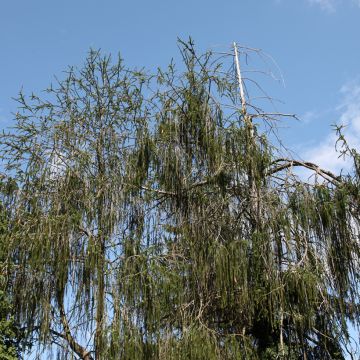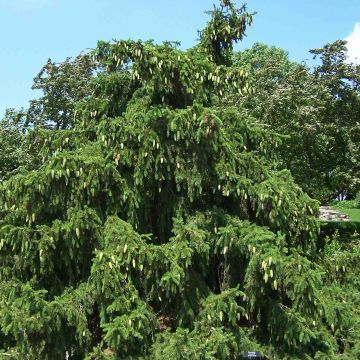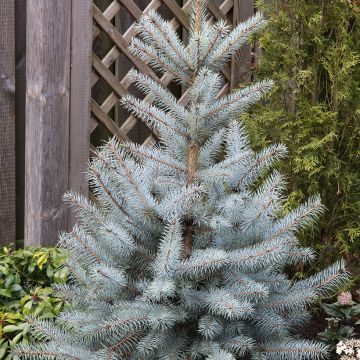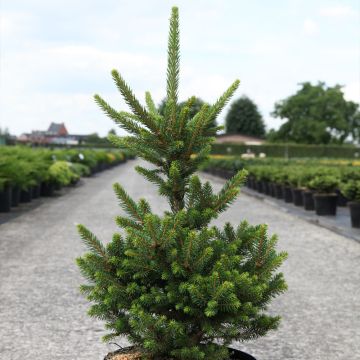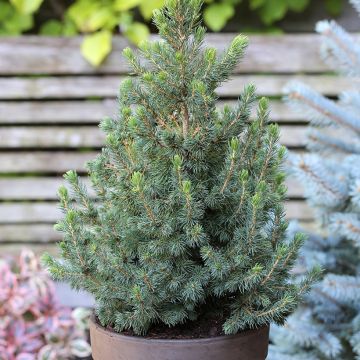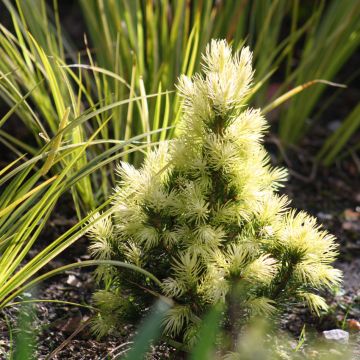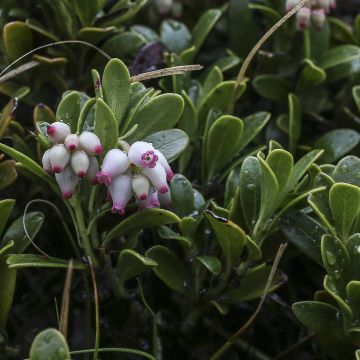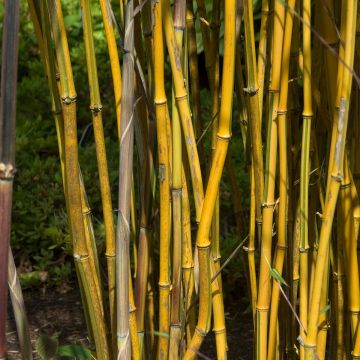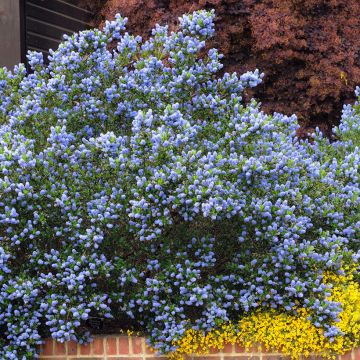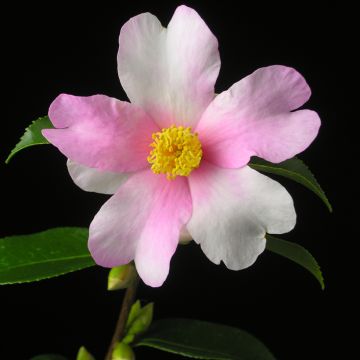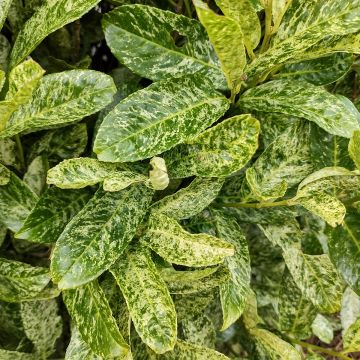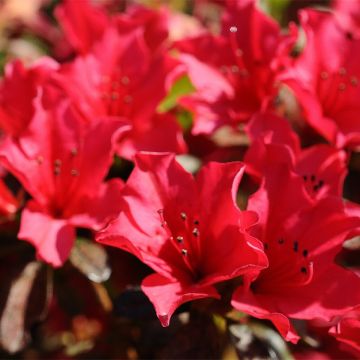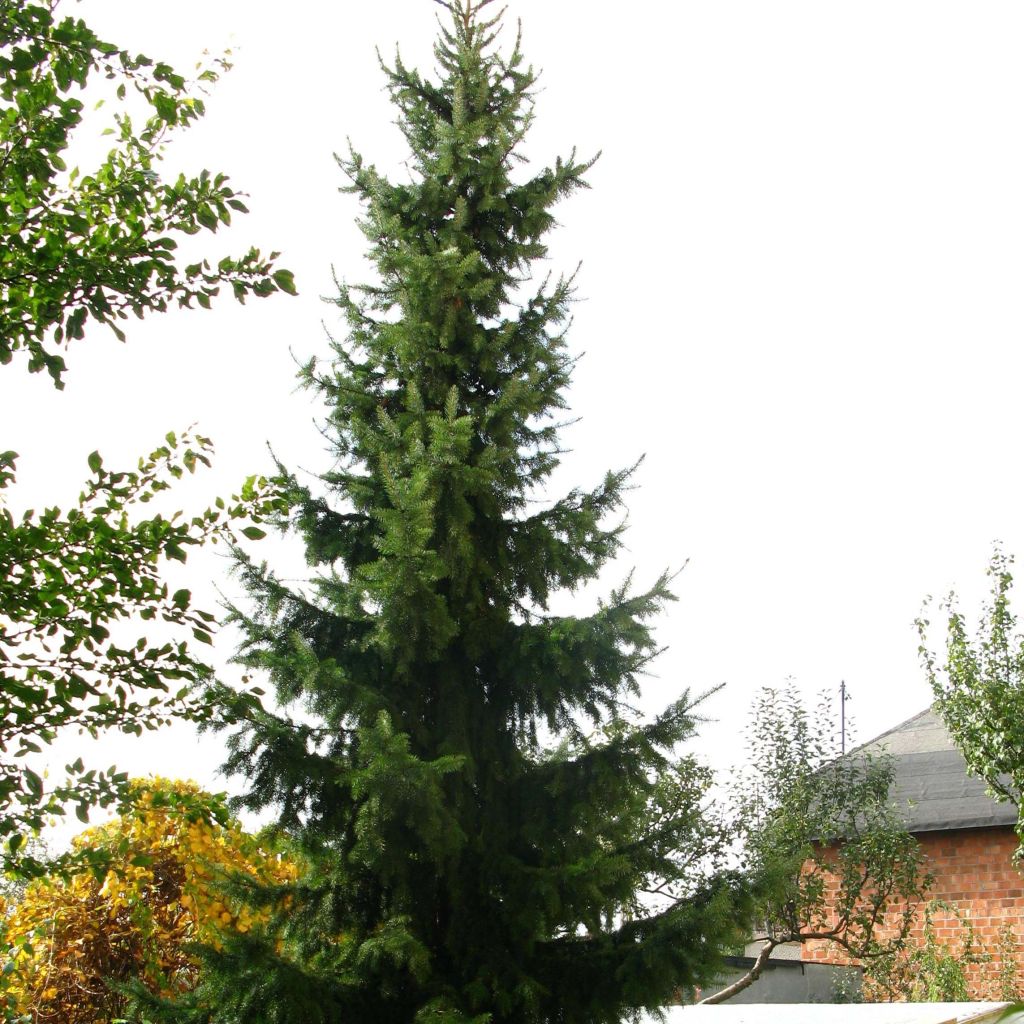

Picea omorika Nana - Serbian Spruce
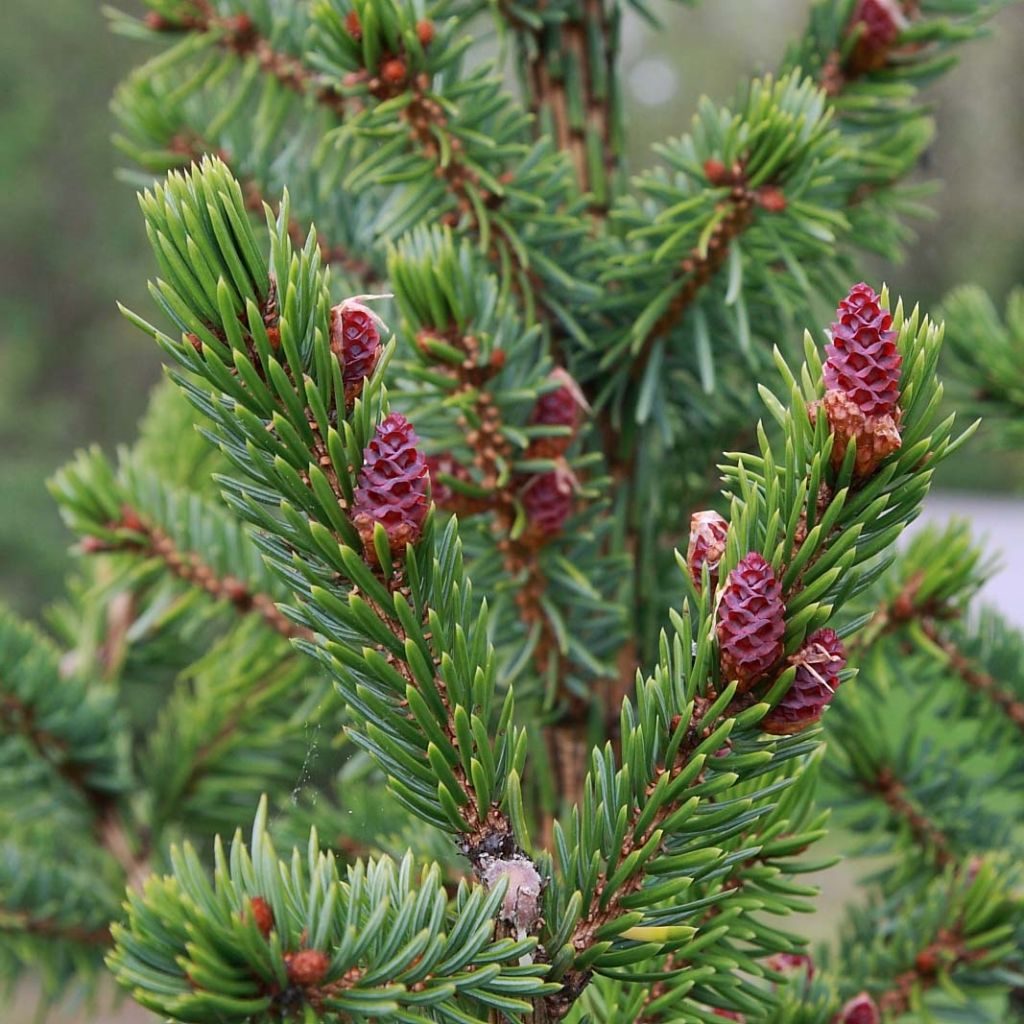

Picea omorika Nana - Serbian Spruce
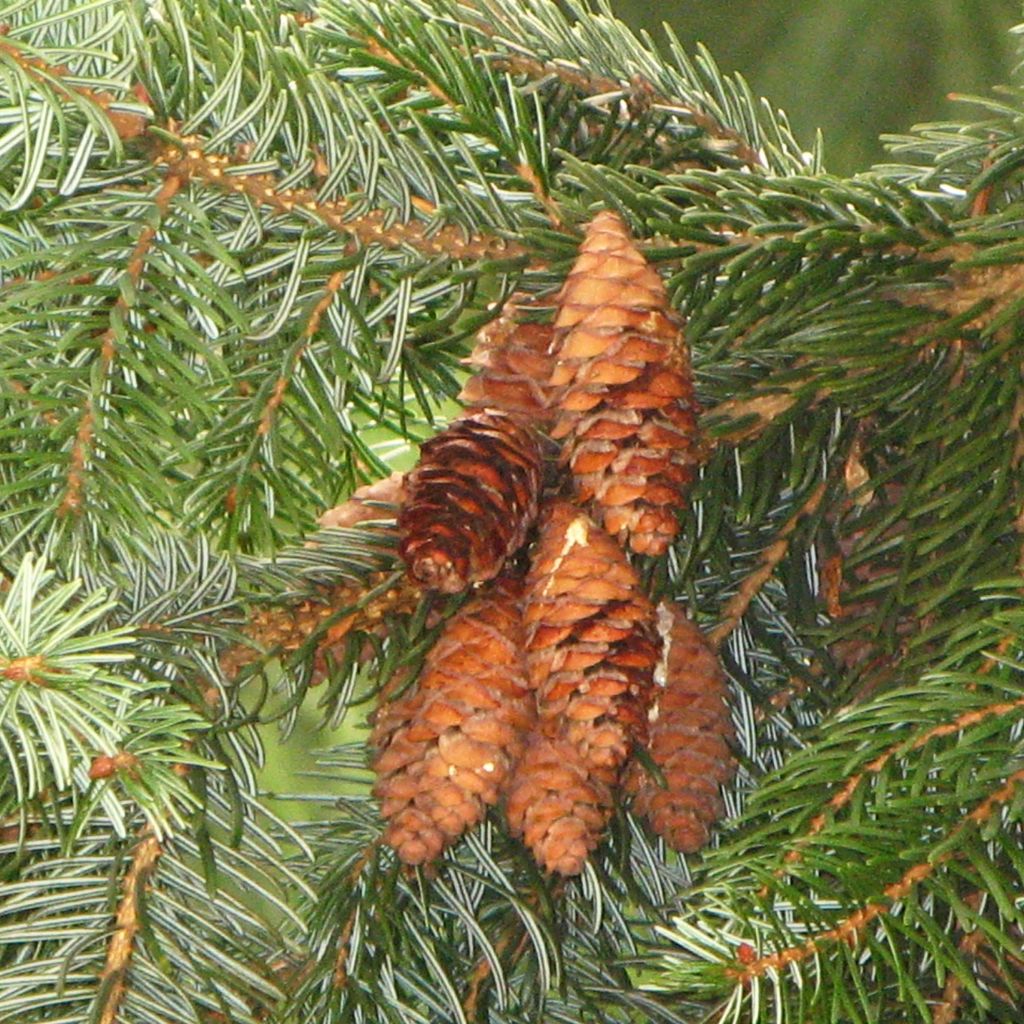

Picea omorika Nana - Serbian Spruce
Picea omorika Nana - Serbian Spruce
Picea omorika Nana
Dwarf Serbian Spruce
Special offer!
Receive a €20 voucher for any order over €90 (excluding delivery costs, credit notes, and plastic-free options)!
1- Add your favorite plants to your cart.
2- Once you have reached €90, confirm your order (you can even choose the delivery date!).
3- As soon as your order is shipped, you will receive an email containing your voucher code, valid for 3 months (90 days).
Your voucher is unique and can only be used once, for any order with a minimum value of €20, excluding delivery costs.
Can be combined with other current offers, non-divisible and non-refundable.
Home or relay delivery (depending on size and destination)
Schedule delivery date,
and select date in basket
This plant carries a 24 months recovery warranty
More information
We guarantee the quality of our plants for a full growing cycle, and will replace at our expense any plant that fails to recover under normal climatic and planting conditions.
Would this plant suit my garden?
Set up your Plantfit profile →
Description
Picea omorika 'Nana' is a Serbian spruce of medium size and very slow growth, ideal for small gardens. It has an attractive conical and compact habit, reaching on average 2.5 m (8 ft 2 in) in height and 1.5 m (4 ft 11 in) in width at maturity. Its short and dense branches bear shiny soft green needles with silver undersides. Its silhouette brings life to large rockeries and it is suitable for cultivation in large pots on a terrace. It is a small, vigorous and very hardy conifer, with low maintenance requirements and no need for pruning. It thrives in well-drained, not overly dry soil, and in a sunny exposure.
Picea omorika, also known as Serbian Spruce, is a plant of the pine family native to Bosnia and Serbia. It is a rare species, endemic to the Drina Valley (in Western and Eastern Serbia). In its harsh natural environment, this tree can exceed 30 m (98 ft) in height and has a narrow pyramidal habit with pendulous branches. This conifer shows tolerance towards soil conditions and perfectly withstands pollution.
The 'Nana' variety has highly ramified branches, initially forming an upright cone and becoming looser with age. Its growth is very slow, around 10 cm (3.9 in) in height and 5 cm (2 in) in width per year. A 10-year-old specimen will not exceed 3 m (9 ft 10 in) in height and 2 m (6 ft 7 in) in diameter at the base. It produces thin and short branches that are very close together and slightly pointed towards the sky. They are covered with relatively long, flat and shiny needles, arranged radially around the branches, and an aromatic (resin) smell. They are bright blue-green on the top and have 2 shiny white bands underneath, giving the foliage a silvery sheen.
The Dwarf Serbian Spruce 'Nana' deserves to be better known and planted in gardens. With its easy cultivation, personality, and reduced development, it is a perfect plant for small gardens, rockeries, and terraces. It thrives in many situations and adapts to various climates, as long as the soil is well drained. This plant goes well with large stones, geometric lines, and masonry works. It can be combined with dwarf conifers with prostrate (Juniperus horizontalis Blue Chip), globose, or columnar habit. The true graphic qualities of conifers naturally impose themselves in the design of a contemporary garden, which prefers the aesthetics of shapes, silhouettes, and textures over the dance of blooms. These plants, with their reassuring permanence, structurally define a bed, mark pathways and border terraces, easily replacing the strong presence of trimmed boxwood or holly. They go well with heathers, shrubby salvias, or ground-cover plants such as aubrietas and cerastiums, as well as light-flowering shrubs like gauras. The key is to play with volumes and colours.
Report an error about the product description
Picea omorika Nana - Serbian Spruce in pictures
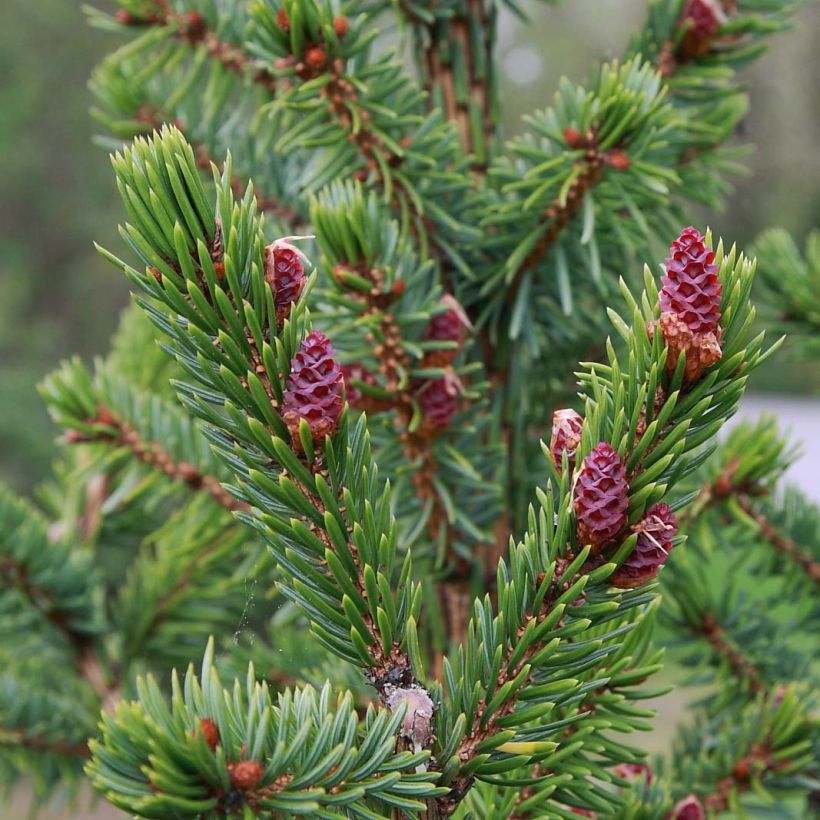

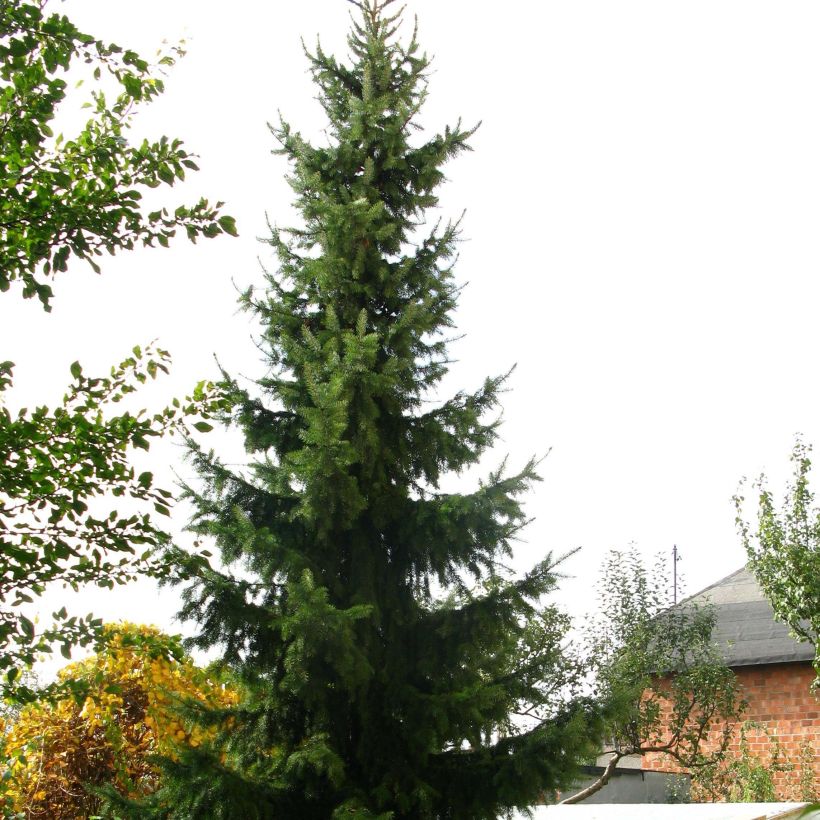

Plant habit
Foliage
Botanical data
Picea
omorika
Nana
Pinaceae
Dwarf Serbian Spruce
Cultivar or hybrid
Other Picea
View all →Planting and care
Picea omorika 'Nana' is planted from September to November and from February to June in ordinary, well-drained, moist or dry, preferably fertile soil, and even limestone. Sandy, humus-rich or rocky soil will be perfectly suitable. Choose a sunny or semi-shaded location, sheltered from prevailing winds. Soak the root balls well before planting. Add organic compost when planting and water generously in the first years, and in case of prolonged drought. Apply a special conifer fertiliser every year in April and cultivate the soil in summer. This very hardy conifer (down to -30 °C (-22 °F) at least) fears heavy, waterlogged soils in winter, however. Pruning is not necessary.
Planting period
Intended location
Care
This item has not been reviewed yet - be the first to leave a review about it.
Similar products
Haven't found what you were looking for?
Hardiness is the lowest winter temperature a plant can endure without suffering serious damage or even dying. However, hardiness is affected by location (a sheltered area, such as a patio), protection (winter cover) and soil type (hardiness is improved by well-drained soil).

Photo Sharing Terms & Conditions
In order to encourage gardeners to interact and share their experiences, Promesse de fleurs offers various media enabling content to be uploaded onto its Site - in particular via the ‘Photo sharing’ module.
The User agrees to refrain from:
- Posting any content that is illegal, prejudicial, insulting, racist, inciteful to hatred, revisionist, contrary to public decency, that infringes on privacy or on the privacy rights of third parties, in particular the publicity rights of persons and goods, intellectual property rights, or the right to privacy.
- Submitting content on behalf of a third party;
- Impersonate the identity of a third party and/or publish any personal information about a third party;
In general, the User undertakes to refrain from any unethical behaviour.
All Content (in particular text, comments, files, images, photos, videos, creative works, etc.), which may be subject to property or intellectual property rights, image or other private rights, shall remain the property of the User, subject to the limited rights granted by the terms of the licence granted by Promesse de fleurs as stated below. Users are at liberty to publish or not to publish such Content on the Site, notably via the ‘Photo Sharing’ facility, and accept that this Content shall be made public and freely accessible, notably on the Internet.
Users further acknowledge, undertake to have ,and guarantee that they hold all necessary rights and permissions to publish such material on the Site, in particular with regard to the legislation in force pertaining to any privacy, property, intellectual property, image, or contractual rights, or rights of any other nature. By publishing such Content on the Site, Users acknowledge accepting full liability as publishers of the Content within the meaning of the law, and grant Promesse de fleurs, free of charge, an inclusive, worldwide licence for the said Content for the entire duration of its publication, including all reproduction, representation, up/downloading, displaying, performing, transmission, and storage rights.
Users also grant permission for their name to be linked to the Content and accept that this link may not always be made available.
By engaging in posting material, Users consent to their Content becoming automatically accessible on the Internet, in particular on other sites and/or blogs and/or web pages of the Promesse de fleurs site, including in particular social pages and the Promesse de fleurs catalogue.
Users may secure the removal of entrusted content free of charge by issuing a simple request via our contact form.
The flowering period indicated on our website applies to countries and regions located in USDA zone 8 (France, the United Kingdom, Ireland, the Netherlands, etc.)
It will vary according to where you live:
- In zones 9 to 10 (Italy, Spain, Greece, etc.), flowering will occur about 2 to 4 weeks earlier.
- In zones 6 to 7 (Germany, Poland, Slovenia, and lower mountainous regions), flowering will be delayed by 2 to 3 weeks.
- In zone 5 (Central Europe, Scandinavia), blooming will be delayed by 3 to 5 weeks.
In temperate climates, pruning of spring-flowering shrubs (forsythia, spireas, etc.) should be done just after flowering.
Pruning of summer-flowering shrubs (Indian Lilac, Perovskia, etc.) can be done in winter or spring.
In cold regions as well as with frost-sensitive plants, avoid pruning too early when severe frosts may still occur.
The planting period indicated on our website applies to countries and regions located in USDA zone 8 (France, United Kingdom, Ireland, Netherlands).
It will vary according to where you live:
- In Mediterranean zones (Marseille, Madrid, Milan, etc.), autumn and winter are the best planting periods.
- In continental zones (Strasbourg, Munich, Vienna, etc.), delay planting by 2 to 3 weeks in spring and bring it forward by 2 to 4 weeks in autumn.
- In mountainous regions (the Alps, Pyrenees, Carpathians, etc.), it is best to plant in late spring (May-June) or late summer (August-September).
The harvesting period indicated on our website applies to countries and regions in USDA zone 8 (France, England, Ireland, the Netherlands).
In colder areas (Scandinavia, Poland, Austria...) fruit and vegetable harvests are likely to be delayed by 3-4 weeks.
In warmer areas (Italy, Spain, Greece, etc.), harvesting will probably take place earlier, depending on weather conditions.
The sowing periods indicated on our website apply to countries and regions within USDA Zone 8 (France, UK, Ireland, Netherlands).
In colder areas (Scandinavia, Poland, Austria...), delay any outdoor sowing by 3-4 weeks, or sow under glass.
In warmer climes (Italy, Spain, Greece, etc.), bring outdoor sowing forward by a few weeks.






























